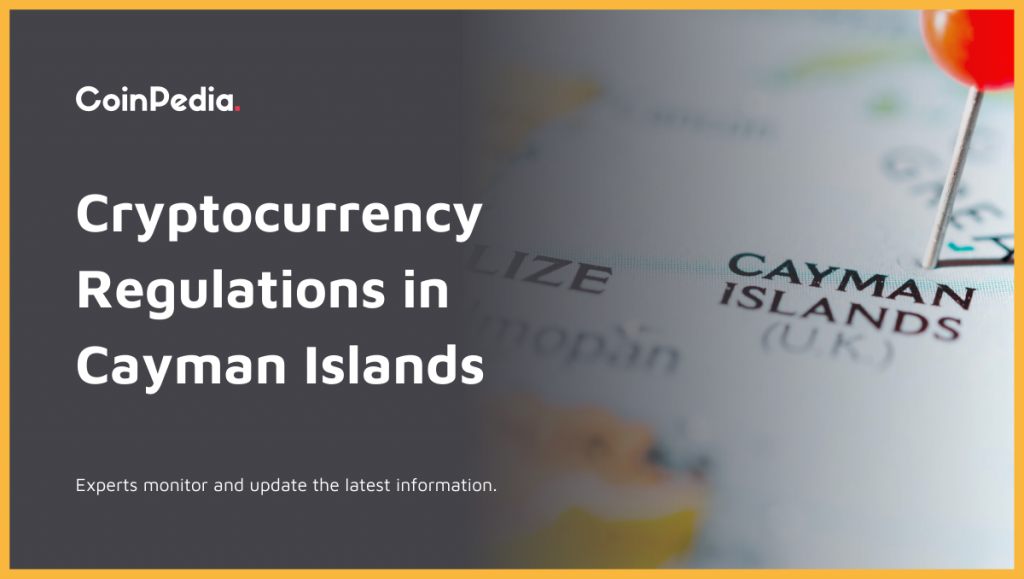Cryptocurrency Regulation in Cayman Island

The post Cryptocurrency Regulation in Cayman Island appeared first on Coinpedia – Fintech & Cryptocurreny News Media| Crypto Guide
Virtual assets in the Cayman Islands are accepted and digital representations of value that can be electronically traded and used for investment purposes.
The Cayman Islands are the most popular jurisdictions in the world for blockchain-related businesses and cryptocurrency funds. Well known for the largest initial coin offerings (ICO) ever recorded and a growing ecosystem of Blockchain technology companies.
Cayman Island Crypto Regulations 2022
26-02-2022: Bitcoin and crypto are tax-free in the Cayman Islands.
The Cayman Islands does not impose any taxes for all crypto transactions in the country. Hence it is known as Crypto heaven for both businesses and investors of the crypto market. Cayman Islands Monetary Authority imposes no corporate tax on businesses and no income tax nor capital gain tax on residents.
Government Stance on Cryptocurrency
The Cayman Islands recently announced Virtual asset service providers to attract crypto businesses to the country. The VASP law came into effect in 2020, In addition to VASP law, the Cayman Islands Monetary Authority announced the opening of registration or notification for entities willing to provide virtual asset services.
The VASP law is applicable to all those entities providing virtual asset services in the Cayman Islands. The virtual assets services followed under VASP law are:
- exchanges between virtual assets and fiat currencies.
- The exchange between one or more other forms of convertible virtual assets.
- Transfer of virtual assets.
- Virtual asset custody service or, participation in and provision of financial services related to virtual asset insurance or the sale of a virtual asset.
The entities that fall under VASP law are :
- Issuers of virtual assets.
- Virtual asset custodians.
- Virtual asset trading platforms as well as entities providing financial services related to the sale of virtual assets.
Crypto Taxation in the Cayman Islands
Cayman Islands regulatory regime focuses on the financial service industry. especially those catering to sophisticated and institutional investors from other jurisdictions. The Cayman Islands is one of the most popular tax-free countries for cryptocurrency.
The government of the Cayman Islands has not imposed any form of income, inheritance gift, corporation withholding, capital gains, or other similar taxes on digital assets. Holding Cryptocurrency for any period and transferring crypto is also tax-free in the country.
Crypto Mining in the Cayman Islands
Crypto mining in the Cayman Islands is not regulated or prohibited in the country under the VASP act. The establishment of Mining operations within the jurisdictions is affected by import duties applicable to computing equipment and the high-cost electricity production in the Islands.
Historical Events & Announcements
02-11-2020: The Cayman Islands is building a regulatory framework for virtual asset service providers (VASPs). The Cayman Ministry of Financial Services has published a set of rules that came into effect on October 28, 2020.
06-11-2020: The Cayman Islands announces a new regulatory framework to create a new legislative framework for cryptocurrency. which can attract more digital currency and blockchain companies to set up in the jurisdiction.
31-10-2020: The Country has announced a regulatory framework for “Virtual asset service providers†in the country. VASP law is applicable to all entities currently providing virtual asset services in the Cayman Islands.
Conclusion
The Cayman Islands is a leading global financial center, developed with a reputation as one of the world’s most innovative and business-friendly places over the globe. Cayman jurisdiction has become now an obvious choice for the one who is wanting to establish fintech-related structures. In the form of fund vehicle investing into digital assets, an exchange or initial coin or token offerings, or the launch of decentralized finance protocol or network.